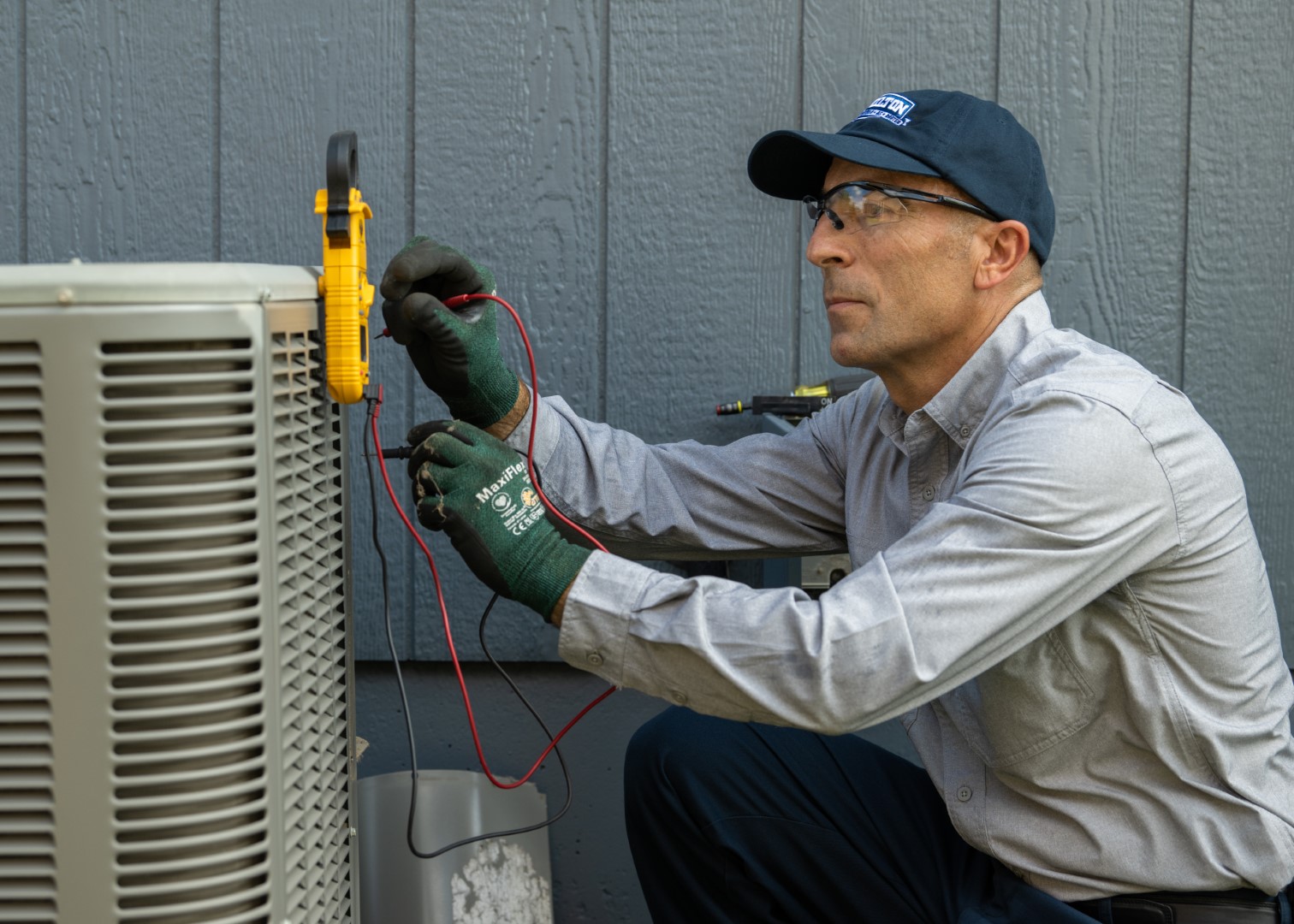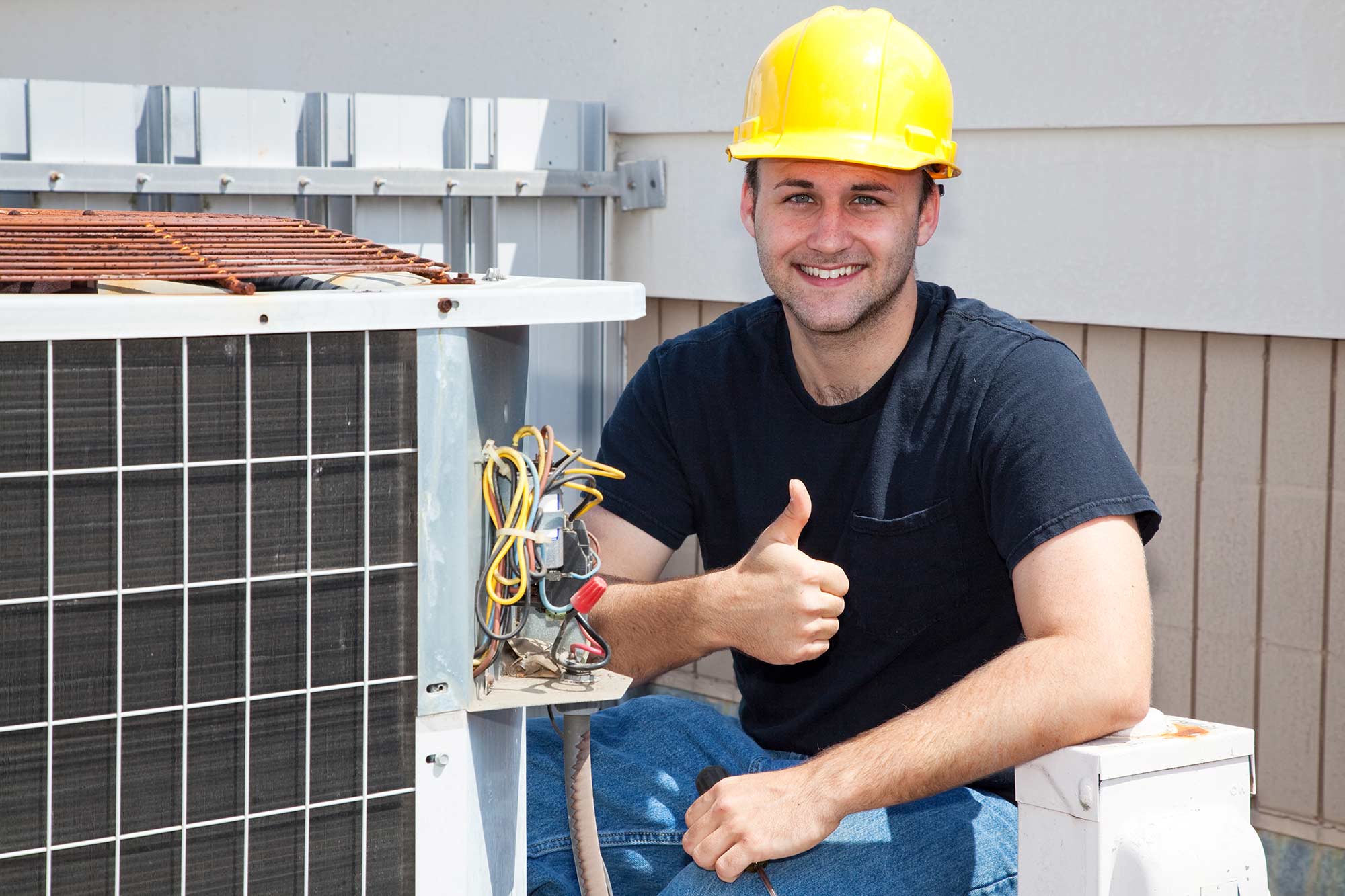Everything about Heating And Cooling: Identifying Common Issues and Effective A/c Repair Methods
A/c systems are vital for maintaining indoor convenience. Understanding their parts and functionality is vital for determining usual concerns. Home owners commonly face problems such as inadequate cooling, odd odors, or increasing energy costs. These signs can suggest underlying concerns that may require attention. Exploring DIY troubleshooting techniques can be valuable, however knowing when to seek professional assistance is equally vital. What actions can be taken to assure resilient efficiency?
Understanding Your HVAC System: Elements and Performance
A HVAC system, usually thought about the backbone of interior climate control, is composed of several crucial elements that function with each other to manage temperature level and air high quality. The main components include the home heating device, air flow system, and cooling unit. The home heating device, generally a heater or central heating boiler, produces warmth throughout colder months, while the air conditioning unit cools indoor areas during the summer season.

Usual Cooling And Heating Problems House Owners Encounter
Property owners typically encounter numerous typical heating and cooling troubles, including inconsistent temperature level distribution throughout their living spaces. In addition, unusual noises throughout operation can suggest underlying concerns that call for interest. Resolving these worries promptly is crucial for maintaining ideal system performance.
Irregular Temperature Circulation
Several houses experience the frustrating issue of irregular temperature level circulation, where particular areas feel annoyingly warm while others stay as well cool. This issue commonly emerges from a variety of elements, consisting of bad insulation, obstructed vents, or an improperly sized heating and cooling system. When ducts are not adequately secured or when furniture blocks air movement, some areas might obtain inadequate air conditioning. Furthermore, thermostat positioning can considerably influence temperature policy; a thermostat located in a sunlit area may misrepresent the general temperature level of your house. Routine upkeep, consisting of cleansing filters and ensuring ductwork is clear, can aid minimize these inconsistencies. Homeowners might likewise think about zoning systems to better control temperatures throughout various areas of the home, promoting a much more comfy living atmosphere.
Unusual Noises During Procedure
When a cooling and heating system runs, unusual noises can suggest underlying problems that need attention. Property owners may encounter a range of noises, such as grinding, squeaking, or hissing. Grinding noises usually signify damaged bearings or parts, while squealing can recommend loosened belts or components needing lubrication. Hissing may indicate a refrigerant leak, which can jeopardize the system's efficiency. Additionally, banging audios may aim to loosened ductwork or a concern with the blower fan. Each of these sounds serves as a caution, triggering homeowners to investigate additionally. Ignoring these signs can bring about more significant problems and expensive fixings. Normal maintenance and prompt interest to uncommon sounds can improve system durability and performance, ensuring a comfortable living atmosphere.
Indicators That Indicate Your A/c Requirements Repair Service
Exactly how can one inform if their a/c device wants fixing? A number of indicators may indicate underlying issues requiring specialist focus. If the AC falls short to cool the room successfully, it may suggest a refrigerant leak or compressor malfunction. In addition, an increase in power bills without corresponding use modifications could indicate ineffectiveness in the system. House owners should also look out to uncommon scents originating from the system, which could suggest mold growth or electrical issues. If the Air conditioner often cycles on and off, it might be an indication of a defective thermostat or various other mechanical problems. The visibility of water merging around the system can suggest a stopped up drainpipe line. Recognizing these indications early can conserve time and cash, guaranteeing that the air conditioning system runs effectively and effectively.
Do It Yourself Troubleshooting Techniques for Cooling And Heating Issues
When encountering heating and cooling issues, house owners can utilize several do it yourself repairing methods to identify the problem. Key approaches consist of checking thermostat setups, inspecting air filters, and assessing drain problems. These actions can help pinpoint common breakdowns prior to seeking expert support.
Inspecting Thermostat Setups
What actions should house owners require to guarantee their thermostat setups are correct? Initially, they must confirm the thermostat is readied to the preferred temperature and setting, whether heating or air conditioning. Inspecting for a clear screen and confirming the thermostat is not set to "hold" or "vacation" setting is crucial. House owners must additionally verify that the thermostat is degree and set up in an area free from drafts, direct sunshine, or various other temperature influences. In addition, altering the thermostat can help supply accurate analyses. If the thermostat operates on batteries, replacing them may fix any type of concerns. By methodically assessing these factors, house owners can typically identify and correct thermostat-related troubles, promoting optimal HVAC system efficiency.
Inspecting Air Filters
Air filters play an essential duty in keeping suitable HVAC efficiency. They trap dirt, irritants, and other bits, making sure clean air flow. Gradually, filters can end up being blocked, minimizing airflow and effectiveness. To evaluate air filters, people need to first situate the filter, usually located in the return air duct or near the furnace. Once located, they should examine the filter's problem-- if it shows up dirty or stained, it most likely needs replacement. Most filters need altering every 1-3 months, relying on usage and ecological factors. Regular examination and timely substitute of air filters not just improve air top quality but likewise prolong the lifespan of cooling and heating systems, preventing potential malfunctions and expensive repairs.
Reviewing Drain Issues
Exactly how can house owners efficiently identify and deal with water drainage problems within their HVAC systems? Initially, they need to check the condensate drain line for blockages or obstructions, which can lead to water accumulation. Home owners might make use of a wet/dry vacuum to get rid of any particles obstructing the line. Next off, examining the drain pan for rust or leakages is crucial, as a harmed pan can trigger water to overflow. Normal cleansing of the drainpipe line with a mix of vinegar and water aids avoid future obstructions. Additionally, making certain appropriate incline of the drain line advertises efficient water flow. If these DIY techniques do not solve the issue, seeking advice from a professional a/c service technician may be go to website required to stay clear of potential water damage and system failing.
When to Call a Professional for Air Conditioning Repair Services

While some air conditioner problems can be taken care of with do it yourself methods, there are scenarios where calling an expert becomes vital. Property owners should seek expert aid when they experience consistent troubles, such as inadequate air conditioning, unusual sounds, or unusual odors emanating from the device. These signs and symptoms may indicate much deeper problems that need specialized understanding and devices to diagnose and repair correctly.

Preventative Maintenance Tips for HVAC Longevity
Routine preventative upkeep can significantly improve the long life of a/c systems. House owners ought to set up annual assessments by licensed professionals to analyze system performance and determine prospective problems. Frequently changing or cleaning air filters is necessary, as this guarantees proper air movement and lowers stress on the system. On top of that, checking and sealing ductwork protects against power loss and boosts general efficiency.
It is additionally suggested to maintain the outside unit clear of particles and greenery, allowing for peak air flow and warmth exchange. websites Home owners must evaluate the condensate drainpipe for clogs to stay clear of water damages and mold growth. Additionally, preserving suitable thermostat setups and making use of programmable options can improve power efficiency. Lastly, recording maintenance activities aids track solution history and can help in determining repeating issues (HVAC contractor). By complying with these preventative steps, people can make best use of the efficiency and lifespan of their HVAC systems
Frequently Asked Concerns
Just how Usually Should I Change My HVAC System Filters?
Heating and cooling system filters ought to generally be replaced each to three months, depending on use, filter kind, and environmental variables. Routine replacement helps keep performance and air quality, making sure peak system efficiency throughout the year.
What Size HVAC System Do I Required for My Home?
To determine the appropriate HVAC system size for a home, one have to consider square video, insulation top quality, and local climate. Consulting a professional can help ensure maximum effectiveness and convenience for the particular living area.
Are There Eco-Friendly Heating And Cooling Options Available?
Yes, environment-friendly cooling and heating alternatives are offered, consisting of energy-efficient warm pumps, solar-powered systems, and geothermal heating. These choices decrease energy usage and ecological effect, advertising sustainability while maintaining reliable environment control for residential and business areas.
Exactly How Can I Boost My cooling and heating System's Energy Efficiency?
To improve HVAC energy performance, one can frequently preserve the system, seal air leakages, set up programmable thermostats, utilize energy-efficient filters, and guarantee ample insulation throughout the home to decrease energy consumption and enhance efficiency.

What Is the Average Life-span of a Heating And Cooling System?
The typical life-span of an a/c system generally varies from 15 to 25 years, relying on aspects such as maintenance, usage, and the quality of installment. Routine maintenance can significantly prolong its operational durability.
Verdict
In recap, a detailed understanding of cooling and heating systems empowers home owners to identify common problems and address minor issues properly. Identifying indications of breakdown, utilizing do it yourself troubleshooting methods, and prioritizing regular upkeep can improve system performance and performance. When encountered with complex fixings, employing expert aid is important to assure safety and long life. By promoting pop over to this site understanding and positive treatment, people can enjoy a comfy indoor atmosphere while minimizing unexpected expenses associated with cooling and heating failings.